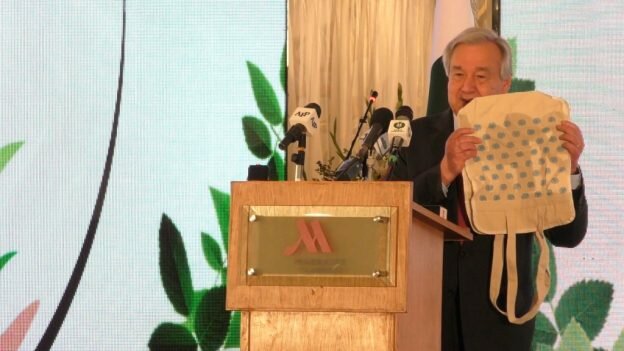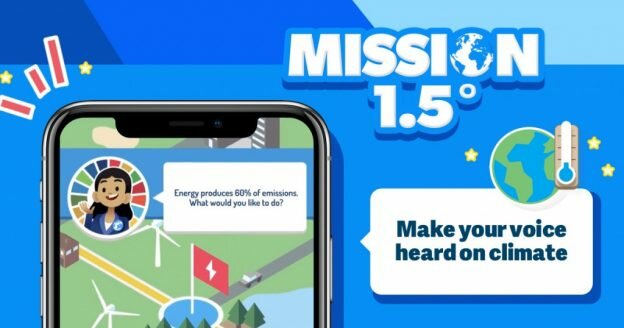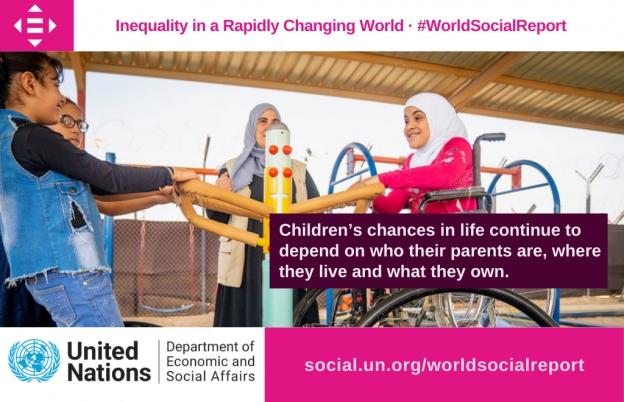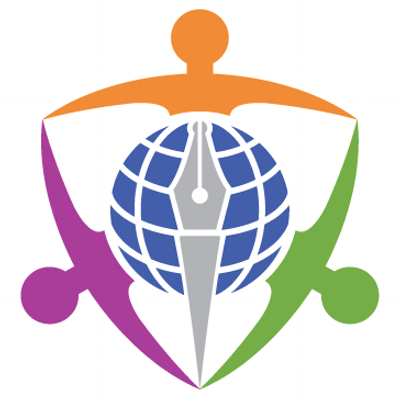( As delivered )
Islamabad, 16 February 2020
It is for me an enormous pleasure to start with this meeting on climate change, my first official visit as Secretary-General to Pakistan. For more than ten years, as High Commissioner for Refugees, I came many times to Pakistan. And in those ten years, I developed a love affair with the Pakistani people and with Pakistan itself.
And that love affair came from the extraordinary generosity and solidarity that the Pakistani people have shown, hosting millions of Afghan refugees, sharing with them its own resources, and independently of the impact, enormous impact on the economy, on the society, not to mention the impact of the Afghan crisis on the security of the country itself.
And I add humbly the possibility also to show my solidarity to Pakistani victims. I remember visiting parts of Kashmir during the earthquake. I remember [meeting] with those displaced by the conflict in the North. I remember being with those impacted by the floods and this very deeply felt solidarity has developed, as I said, a love affair with this country. And I feel that it is totally unfair that Pakistan is, as it was shown in a very eloquent way, is in the first line of negative impacts of climate change. It is not Pakistan that is creating climate change, of course there is a small contribution, but Pakistan is on the first line of the dramatically negative impacts of climate change.
And so I am pleased to be with you today to talk about sustainable development – and our common vision for the future we want – and the climate crisis, which is perhaps the gravest current obstacle to global peace, stability and prosperity.
Peace, prosperity, dignity and the realization of human rights for all people on a healthy planet – these are the objectives of the 2030 Agenda with its 17 time-bound Sustainable Development Goals.
Agreed by all United Nations Member States five years ago, the Sustainable Development Goals are an interlinked and an holistic blueprint to end poverty in all its forms and to build the kinds of societies that we will be proud to pass down to future generations.
The Goals cover the whole spectrum of human progress.
They target poverty, inequality, hunger and health.
They address key topics, such as the quality of the education, decent work, a just economy, gender equality.
They deal with climate change, with the oceans, biodiversity and the natural environment on which we all depend. And it makes natural solutions to be a central aspect of our strategy
And they promote justice, strong institutions and partnerships that will enable all countries to progress sustainably.
And let me emphasize “all countries”.
For the Sustainable Development Goals are relevant for every nation and every community.
No country can say that it has no inequality, or no urban poor being left behind, or no problems with pollution or climate change.
And no country can say that it is immune from the global forces that will affect its success.
Today’s challenges to sustainable development and human progress do not respect borders.
They are not confined to individual nations.
They demand collaborative answers that recognize that we all share the same planet and we need to cooperate across borders and sectors to realize our aspirations.
And I am pleased to say that Pakistan has embraced the Sustainable Development Goals from the start.
Back in 2016, Pakistan was among the first nations to integrate the SDGs into its national development agenda and recognize them as national development goals.
And, in 2018, Pakistan launched a national SDG framework to prioritize and localize the global goals throughout the country.
And, as with the Goals globally, poverty reduction is at the heart of Pakistan’s effort to leave no one behind.
A national poverty alleviation programme – titled Ehsaas, or compassion – has been launched to expand social protection and safety nets and to support human development.
A national youth development programme – titled Kamyab Jawan – is seeking to create 10 million jobs for young people in five years.
And stunting and malnutrition are down.
And the nation is seeing success in bringing down neonatal mortality, thanks in large part to the Lady Health Workers Programme, which has seen a significant increase in skilled birth attendants.
I am also encouraged by the country’s initiative this year to promote universal health coverage.
These are just some of the many actions being taken by Pakistan and other nations to achieve the Sustainable Development Goals.
Everywhere, we can see progress – poverty and child deaths down; access to energy, education and decent work rising.
But whether we look at Pakistan or elsewhere, we can also say the pace of change is not yet fast enough.
In Pakistan, you are grappling with major challenges relating to HIV and polio, environmental degradation and providing education, skills and jobs for all in one of the youngest countries in the world.
And globally the story is similar.
We are off-track globally, especially in the areas of hunger, inequality, biodiversity and climate action.
Gender inequality – in business, in the home, in schools, in government, in the technology sector – is denying women and girls their rights and opportunities across the world.
And vulnerable populations – such as migrants, young people and persons with disabilities – remain at risk of being left behind.
Our collective efforts are not approaching the scale we need to deliver the SDGs by 2030.
In fact, by some estimates, we will only get half-way to our goals at the current pace.
For that reason, we have this year launched a Decade of Action to achieve the Sustainable Development Goals.
With only 10 years left before the 2030 deadline, there is an urgent need to step up action.
And every nation, every community and every person can and must make a contribution.
The Decade of Action calls on governments, businesses, civil society and individuals everywhere to combine to create unstoppable momentum for the Goals.
The recipe is clear.
First, to mobilize everyone around a common effort.
Second to demand urgency and action, and to hold leaders to account.
And third, to supercharge ideas so that they become sustainable solutions. We need to identify what works and scale up solutions and investments so that we reach all the people on the planet.
In all of this, the mobilization of finance to fill the gap of some $2.5 to 3 trillion dollars a year is critical.
In a period where Official Development Assistance has been decreasing, together with private foreign investment in the developing world, it is absolutely essential that developed nations deliver on the commitments made in the Addis Ababa Action Agenda and the Paris Agreement.
On the other hand, it is important to support developing Member States in their capacity to mobilize domestic resources through improved governance and tax reforms.
But the success of national efforts also requires the international community to be more effective in clamping down on illicit financial flows, money laundering and tax evasion.
At the same time, we need innovative financial tools and help in de-risking private investment in the developing world to channel much stronger resources to achieve the SDGs.
Ladies and gentlemen,
I firmly believe we can be the generation that ends poverty and hunger and conquers injustice and inequality.
But it is not going to be easy.
We face multiple obstacles.
Geopolitical tensions are higher than they have been for years, and unpredictable changes in power relations in a chaotic world are placing a strain on the multilateral system that has largely kept the world safe for the past 75 years.
Global mistrust, due to growing inequality and unfair globalization, is growing – not only between nations but between peoples and their leaders.
We also have to address the challenges of the fourth industrial revolution and make sure we embrace the benefits while minimizing the risks posed to human rights and equity around the world.
Finally, and central to the discussion today, there is the climate emergency.
This is the threat that I believe is most grave and most urgent, yet is something I am convinced we can tackle, if only we can generate the political will and the unity we need to make a difference.
Climate disruption is a clear and present danger worldwide, but let us, for a minute, look at it through the lens of Pakistan.
Like other developing countries, Pakistan has contributed little to the problem yet faces disproportionate vulnerability because of it.
In the past decade, Pakistan has lost some 10,000 lives to climate-related disasters, including 1,200 who died due to a terrible heatwave in Karachi in 2015.
The Indus Valley is vulnerable to flooding, and low-lying coastal communities face the prospect of being swamped by rising sea levels.
And, currently the country is enduring a risk of a locust emergency, triggered by climate disruption.
Global warming is leading to global swarming.
But the biggest worry for Pakistan is water.
This is true for all the people of Central, South and East Asia who rely on the water towers of the Himalaya.
Pakistan’s smallholder farmers, who represent more than 40 per cent of the labour force, produce 90 per cent of the nation’s food supply and generate 75 per cent of the country’s export revenue.
They depend on rainfall and on irrigation from rivers fed by receding mountain glaciers.
In fact, 80 per cent of Pakistan’s water use is for agriculture.
And it is under threat.
Pakistan is one of the 15 most water-stressed countries in the world.
As temperatures rise and glaciers melt, Pakistan’s goals for reducing poverty and guaranteeing food security are put at risk.
And Pakistan is not alone. The same story is mirrored across the globe.
We see it in the droughts which threaten the Horn of Africa and the Sahel, and the wildfires that have caused so much suffering, most in Australia and the United States.
No country is immune.
That is why I am constantly urging global leaders to act on climate change before it is too late.
Sadly, after the success of the Paris conference in 2015, our momentum has stalled.
COP25 in Madrid was a disappointment.
Our planet is burning but too many decision makers continue to fiddle.
The only answer is decisive climate action – by governments, businesses and investors, mayors and governors, and citizens everywhere.
Gradual approaches are no longer enough.
At the next climate conference – COP26 in Glasgow – Governments must deliver the transformational change our world needs and that people demand, with much stronger ambition.
Ambition on mitigation, but also, as we see with the needs of Pakistan and many other developing countries, ambition on adaptation, and ambition on finance.
Every city, region, bank, pension fund and industry must completely reimagine how they operate.
Our goal must be to keep temperature rise to 1.5 degrees.
This is what the scientific community tells us is the only way to avert runaway climate change.
To do that, the world needs to reduce greenhouse gas emissions by 45 per cent from 2010 levels by 2030 and to reach net zero emissions by 2050.
The main obligation rests on the major emitters, and there is a map that shows that.
Those countries that contributed most to this crisis must lead the way, not least by phasing out coal and ending perverse fossil fuel subsidies.
But all countries can and must play a role.
I commend Prime Minister Imran Khan for highlighting climate change at the United Nations General Debate last September, and I congratulate Pakistan on becoming co-chair of the Green Climate Fund.
I also welcome the initiatives such as the “10 Billion Tree Tsunami” campaign and the government’s Clean and Green Pakistan Movement.
I have to say that I was extremely well impressed when I heard that Pakistan had decided that Islamabad was to abolish plastic bags, and that it will be the same everywhere.
Plastic pollution is today one of the central concerns that we have, especially for the protection of our oceans. Sometimes, people are a little bit reluctant of it, but for those that are reluctant, I have a solution here, which is to use bags like these that are non-plastic bags you get at the supermarket.
Such local initiatives are essential, and they should be reflected and supported across the planet where appropriate.
But ultimately, the answer to the global climate crisis will come from global solidarity backed by global action.
We are in a battle for our lives.
Our sustainable future is at stake.
But I firmly believe it is a battle that can be won.
Technology is on our side.
We have all the tools and knowledge we need to move from the grey economy to the green economy as it was seen in the slides.
We have the Paris Agreement on Climate Change.
We have the Sustainable Development Goals.
And we have the most engaged and mobilized generation of young people in history – a group that is simply not going to accept the current situation.
The history of humanity is one of progress. I believe the trajectory is inexorable.
So, as we look ahead to 2030, let us look ahead with optimism and determination knowing that we have overcome great challenges before, and we will surely do so again.
Thank you.
***







